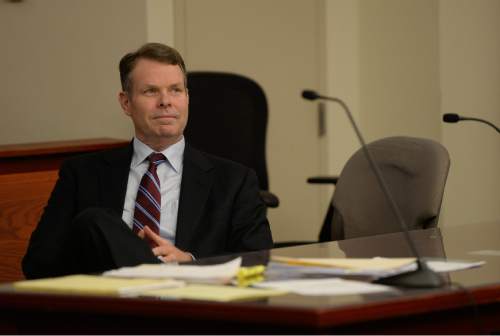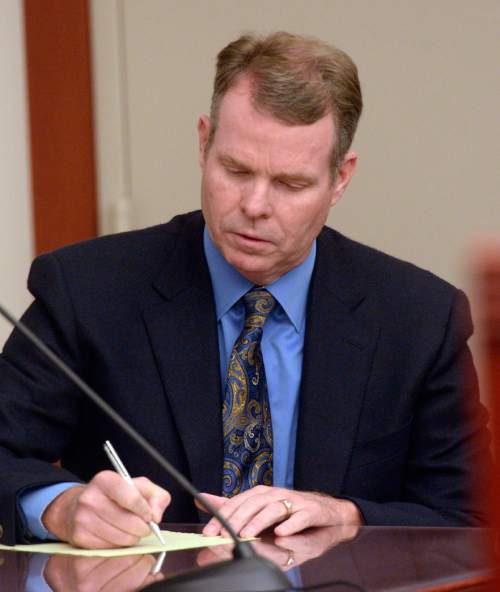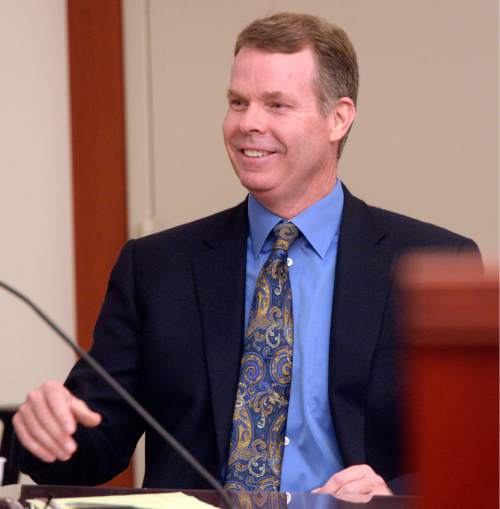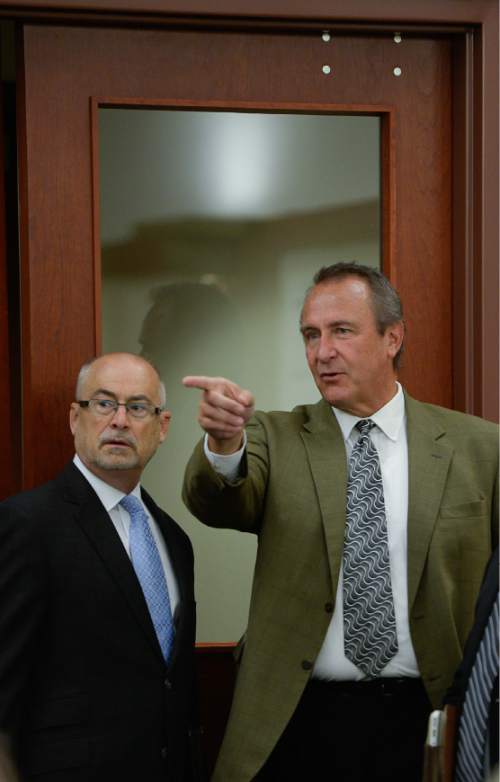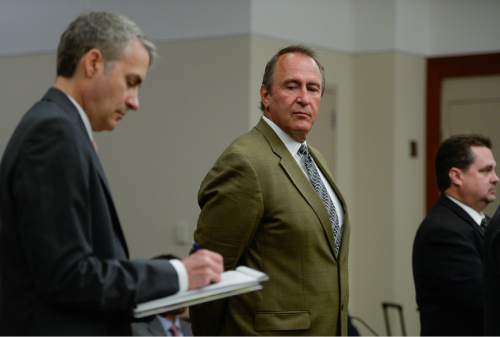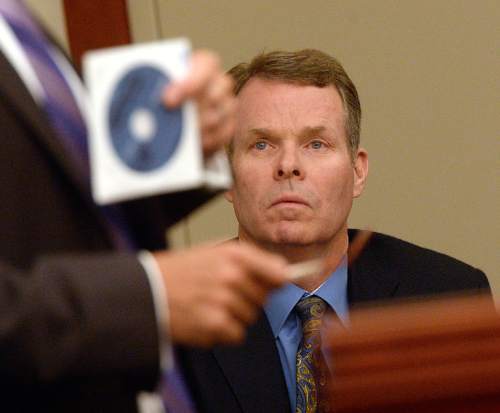This is an archived article that was published on sltrib.com in 2016, and information in the article may be outdated. It is provided only for personal research purposes and may not be reprinted.
If a judge tosses out the cases against former Utah Attorneys General Mark Shurtleff and John Swallow, who might end up paying the hundreds of thousands of dollars in legal bills they racked up?
You.
Utah law allows public officers or state employees accused of committing crimes in the course of their official duties to recoup "reasonable attorneys fees and court costs" if they are acquitted or if the charges are dropped.
Shurtleff and Swallow have separate motions pending before 3rd District Judge Elizabeth Hruby-Mills to dismiss their cases, although it's unclear how soon she might rule.
If she does and if the defendants go after those legal fees — at least two years' worth — the total tab could top $1 million.
"It's going to be a seven-figure payoff or close to it," Salt Lake City defense attorney Greg Skordas estimated.
Under the law, however, taxpayers would be off the hook if a prosecutor's motion drives — and wins — the dismissal. If the court tosses the cases based on motions filed by Shurtleff or Swallow, then the public might have to pick up their legal bills.
Judges ultimately decide whether a public official is entitled to even have their legal fees paid and how much is "reasonable."
That happened a decade ago when Skordas defended former Salt Lake County Mayor Nancy Workman against charges of misuse of public funds. A jury acquitted her in 2005, and Salt Lake County ended up paying her $100,000 bill.
"It happens more than you think," Skordas said. "Most of [the cases] are just not high profile."
Governments have adopted these "fee-shifting" laws or policies partly so that the threat of paying a hefty legal bill isn't a deterrent to public service, explained Paul Cassell, a University of Utah law professor and former federal judge. "We want people to be able to make that decision without having to take into account the implication of attorneys fees."
Shurtleff, a three-term attorney general, and Swallow, his handpicked successor, were jointly charged in July 2014 with multiple corruption counts. Both men, whose cases were separated, have pleaded not guilty. Only Shurtleff currently is scheduled for a trial.
There are competing motions to drop Shurtleff's case. Two were filed weeks ago by his defense team; another surfaced Monday in a stunning move by the prosecutor: Davis County Attorney Troy Rawlings.
Which — if any — of those motions prevails is up to the judge. It's not a question of which came first.
"The rules of criminal procedure don't state what order a judge must take motions to dismiss," court spokesman Geoffrey Fattah said. "The judge can also consider both motions together and determine which motion is appropriate."
Shurtleff's attorneys argue the case should be thrown out because the state has violated their client's right to a speedy trial. They also challenge the credibility of investigators and maintain that three counts of accepting prohibited gifts were wrongly filed.
For his part, Rawlings cites, among his reasons for seeking dismissal, new legal limits due to a recent U.S. Supreme Court ruling and a cooperation agreement in which Shurtleff has pledged to provide "significant" information in a wider corruption probe.
Shurtleff's lawyers responded to Rawlings' motion by asking the judge to dismiss the case on the merits of their claims, not the those of the prosecutors.
That's no accident.
"That's just smart lawyering," Skordas said. "Shurtleff and his people know that he may be entitled to compensation for his attorneys fees."
Rawlings declined to comment on the fee issue, as did Shurtleff's lawyer Richard Van Wagoner.
Attorney Scott C. Williams filed a motion to dismiss Swallow's case back in April, asserting his client's constitutional rights were violated when thousands of his privileged communications with an earlier lawyer were mixed in with evidence Williams argues was seen and used by prosecutors.
Salt Lake County District Attorney Sim Gill, whose office is handling Swallow's case, denies any wrongdoing and vows to press on with the prosecution.
The judge recently heard arguments in the dispute and a decision is pending — possibly by mid-August, when she has a conference call scheduled with attorneys.
Williams declined to comment Thursday, while Gill said the law potentially covering a defendant's legal costs is never a factor in the filing of charges.
If Swallow's motion is granted, it's unclear whether he could seek compensation for all the legal expenses he has incurred. Some of the charges are not directly tied to his time in public office, Skordas noted, and that could cut into the amount the former attorney general might be able to seek.


